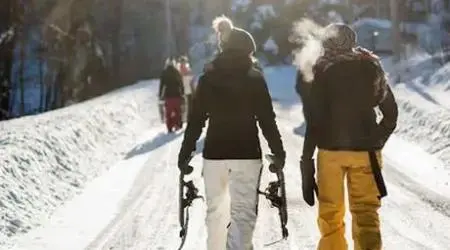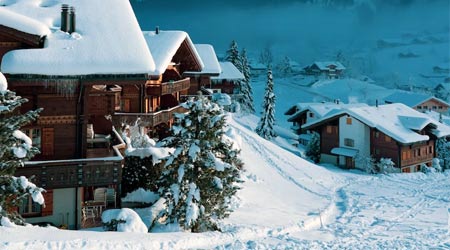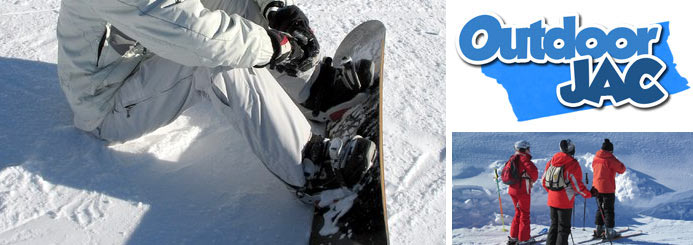


Chalet Couples
![]() France
France
If you and your partner or close friend would like the chance to work a ski season as what the ski industry terms a chalet couple, we would love to hear from you.![]() Details & Apply..
Details & Apply..
Italian ski resorts cannot compete with their French neighbours when it comes to scale. But on many other levels, working in Italy is a great idea. Eating and drinking form a large part of any Italian ski holiday, with the apre ski attracting lots of people from nearby towns and cities, so expect plenty of opportunities in catering, as well as chalet and general resort work. If you want to work as an Instructor in Italy, be warned, it is a bit like in France; they have their own standards you have to pass, including language, technical skills, and safety, though perhaps not quite as tough to pass as the French system.
 POPULAR SKI JOBS IN ITALY
POPULAR SKI JOBS IN ITALY


![]() France
France
If you and your partner or close friend would like the chance to work a ski season as what the ski industry terms a chalet couple, we would love to hear from you.![]() Details & Apply..
Details & Apply..




![]() France, Italy, Austria, Switzerland
France, Italy, Austria, Switzerland
We would like to hear from people who have previous experience working as chalet hosts in a winter resort. If you have at least one season under your belt please get in touch.![]() Details & Apply..
Details & Apply..


![]() France, Italy, Austria, Switzerland Various
France, Italy, Austria, Switzerland Various
Looking to get paid to teach people how to ski and snowboard this coming winter? At OutdoorJAC we help recruit for multi-resort tour operators and small specialist independent ski holiday companies. Share your CV with us to improve your chances of a job offer!![]() Details & Apply..
Details & Apply..
Do you need a visa: If you are an EU citizen you do not need a visa to work in Italy.
If you are a British citizen, your employer will apply on your behalf for a visa lasting six months. Once this is granted, you will be able to get an entry visa. You will also be able to apply for residence permit once you arrive in Italy, your employer will help you with this.
Do you have to learn another language:
It would certainly help. Italian is obviously the main language spoken, though it is worth noting that if you are up in the Dolomites, near the Austrian border then German may be almost as widely spoken as Italian.
So you want to work in Italy
Ski resorts in Italy are predominantly found in the north, though there are a few dotted about reaching as far south as the slopes of Mt Etna on Sicily. The northern Italian border is almost ring fenced by high mountains, from the French and Swiss Alps in the North West to the Dolomites and Austrian Alps in the North East. As for the resorts themselves, the main areas you will hear spoken about are Sella Ronda, Aosta Valley in the shadow of Mont Blanc, and Cervinia. And Via Lattea on the French border which includes the resort everyone has heard of, Sestriere - home to world cup races.
So what is it like to live and work in an Italian ski resort?
Skiing and indeed working in Italy is a real treat. The country isn't as attractive to British skiers for some reason. Like beach goers who set up their windbreaks within a few yards of the entrance, you'll find most people content to strap on their ski boots as soon as they hit the Alps, be that in France, Switzerland or Austria. But if you approach from the south then you will find the Italian mountain resorts every bit as impressive. For those of you lucky enough to live and work there for a full season, you may find your wages will go further than they would in other Alpine countries. The cost of living is definitely more favourable. Food, travel, entertainment, accommodation too if it is not already included in your employment package; the average you will spend on the essentials is definitely lower, though watch out for the tourist traps who will gladly exchange huge piles of Euros for less than impressive pizza and birreria.
As for the snow, you will get plenty in places like Cervinia, nestled as they are in the shadow of the high Alps. In the higher resorts the season is usually extended beyond what you would expect, so it is definitely something to consider when you are looking for work. You may squeeze a few extra weeks wages, or indeed get a week or two at the end of the season to spend some quality time on the snow. Expect Italian resorts like Sestriere to be rather more quiet during the week, and busy at weekends when the locals come out to play. As far as scenery goes, the Piedmont and the Aosta Valley are superb places to live and work. In high season the atmosphere is unbeatable - the Italians know how to party with a bit of class and style.